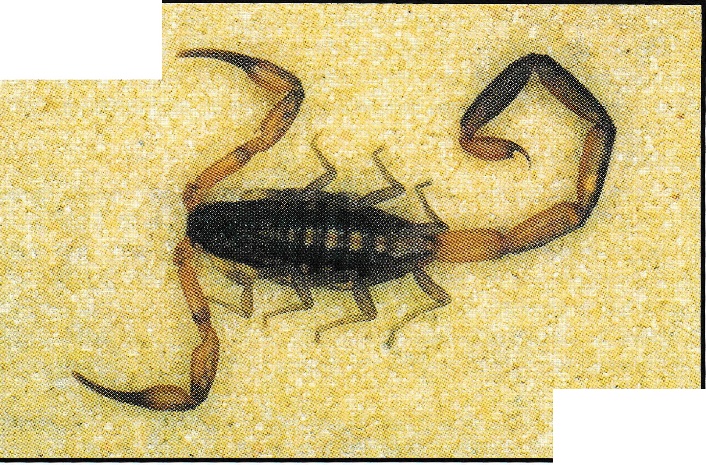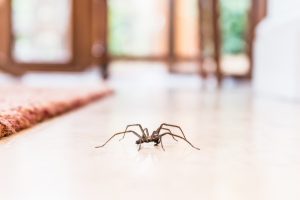When it comes to scorpions in Arkansas, we have only one native species in the state — the Striped Bark Scorpion. Although they’re very common throughout the state, they are seldom seen out and about due to their nocturnal feeding habits, but they can be seen during the day looking for shelter.
Striped Bark Scorpions feed mainly on insects and spiders, but they are also cannibalistic. Preferring prey that is smaller than they are, Striped Bark Scorpions hunt by touch and air movement due to their very poor eyesight. When prey is detected, the Striped Bark Scorpion will catch it with its pinchers, and if the prey is too large or too active they will sting it repeatedly to subdue their meal.
During the day, the Striped Bark Scorpion will usually find a place to safely hide from predators such as birds and reptiles. The preferred hiding places for the Striped Bark Scorpion include:
- Attics
- Wall voids
- Crawlspaces
- Wood piles
- Wall voids
- Underneath the bark of dead trees
- Under rocks
- In ground debris that provides them with protection from predators and relief from hot summer heat
Striped Bark Scorpions are not aggressive but will defend themselves against attack. Their sting can be painful— much like being stung by a wasp with a little more heat— but they are not usually life threatening to people or pets. But due to the fact that Striped Bark Scorpions find harborage inside homes and commercial buildings, people are more likely to be stung by this species than any other. The season for the Striped Bark Scorpion in Arkansas normally starts in June and lasts through late summer. They give birth to around 30 live young at a time, and it can take up to four years for the babies to reach maturity.
Contact us today to set up a professional evaluation and take back your living space!
North Little Rock: 501-758-0322
Conway: 501-329-0396
Benton: 501-776-1388
Bryant: 501-847-1388
Jacksonville/Cabot: 501-843-1322
Hot Springs: 501-623-2335




